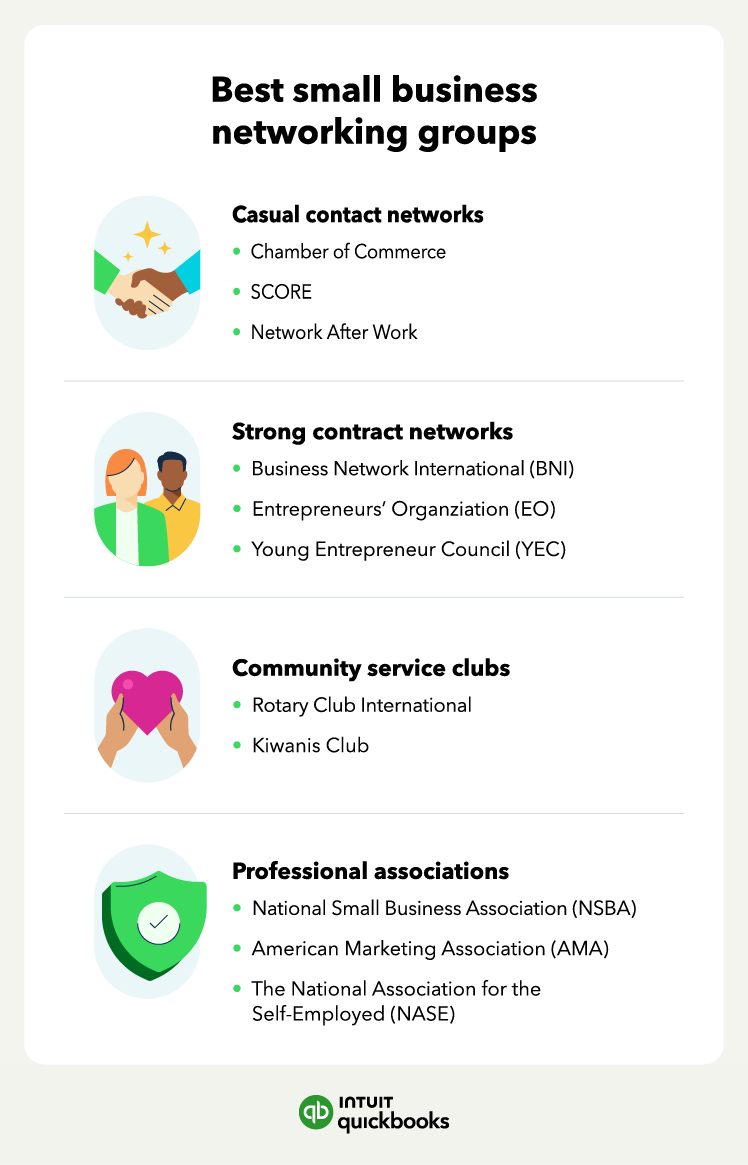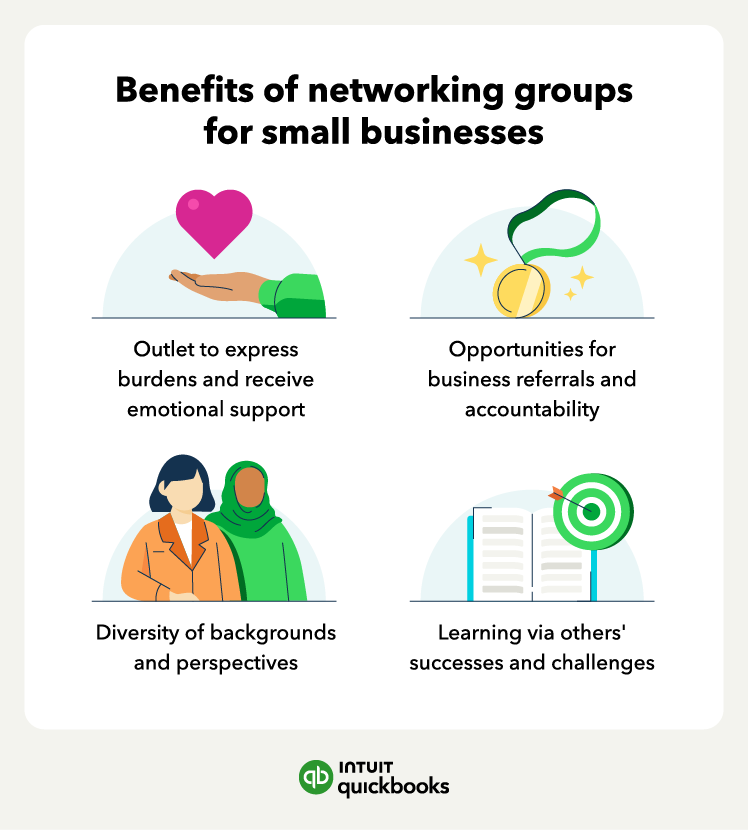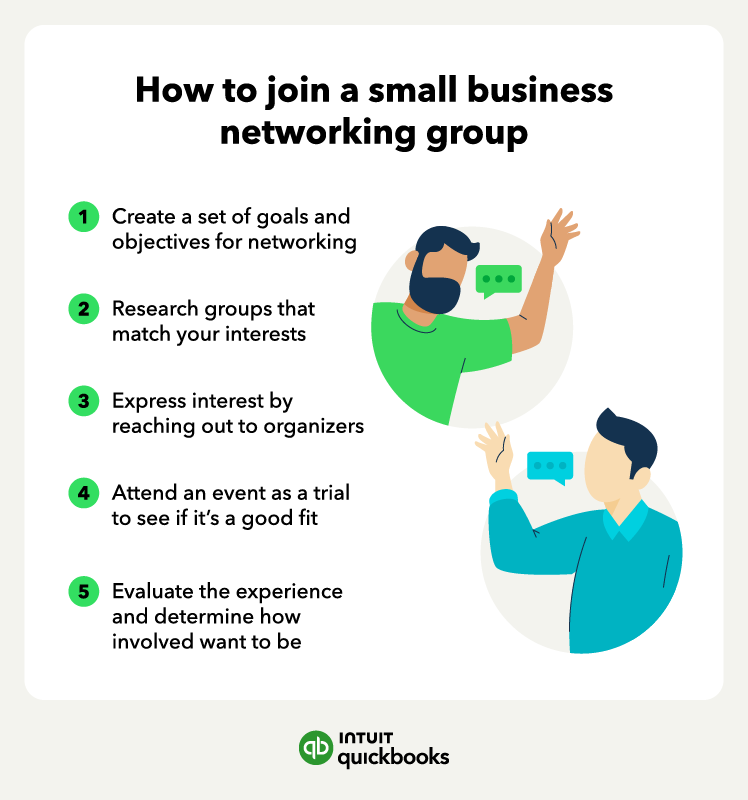Starting a small business is thrilling—so many of us want to be our own boss and set our own destiny. But being a boss can be isolating, and it can sometimes feel like you have nowhere to turn. Through these networking groups, you can find support, inspiration, and new friends to celebrate every step of your journey.
Whether you’re trying to figure out how to attract customers or need help with marketing ideas, joining small business networking groups can provide a key support mechanism as well as supplement your existing skill set.
A recent QuickBooks survey found that more than 75% of small business owners report feeling stressed, but as a leader, you might not want to discuss your feelings or concerns with your employees. At the same time, your friends and family may not be able to help solve work issues. This can leave you without an outlet to discuss stressors and how to deal with them. That’s where you can count on a support group like one of the following to help:
- Chamber of Commerce
- SCORE
- Business Network International (BNI)
- Rotary Club International
- Entrepreneurs' Organization (EO)
- Young Entrepreneur Council (YEC)
- National Small Business Association (NSBA)
- American Marketing Association (AMA)
- Network After Work
- The National Association for the Self-Employed (NASE)
- Kiwanis Club
Business owners can use four key types of small business networking groups to get support.
- Casual contact networks: Open groups or chambers of commerce-type gatherings. These are a great way to meet many new people and get your name out there. However, they may have a lot of participants, meaning it can be difficult to develop strong relationships.
- Strong contact networks: These groups are smaller and more focused than casual contact networks. Members typically meet regularly and share word-of-mouth referrals. This is a great way to develop strong relationships with other business owners who can help you grow your business.
- Community service clubs: These groups are focused on giving back to the community, but they also provide a great opportunity to network with other business owners. Some examples include Rotary Clubs, Kiwanis Clubs, and Lions Clubs.
- Professional associations: These groups are for people who share a common profession or industry. They offer professional development opportunities, networking events, and a chance to connect with other professionals in your field.












 Many chambers have different membership tiers, so explore what your local chamber offers and find the level that best suits your business needs.
Many chambers have different membership tiers, so explore what your local chamber offers and find the level that best suits your business needs.


